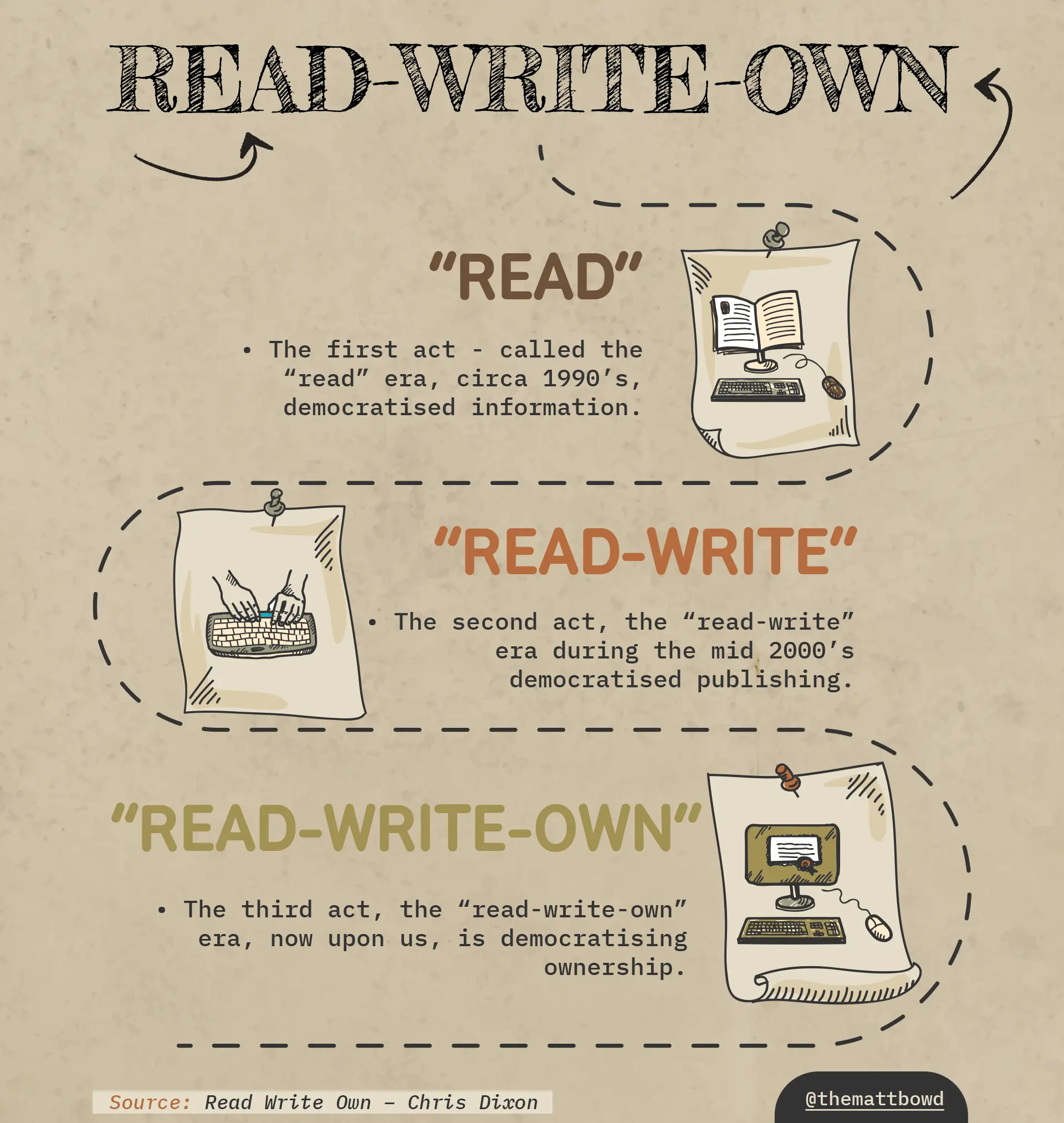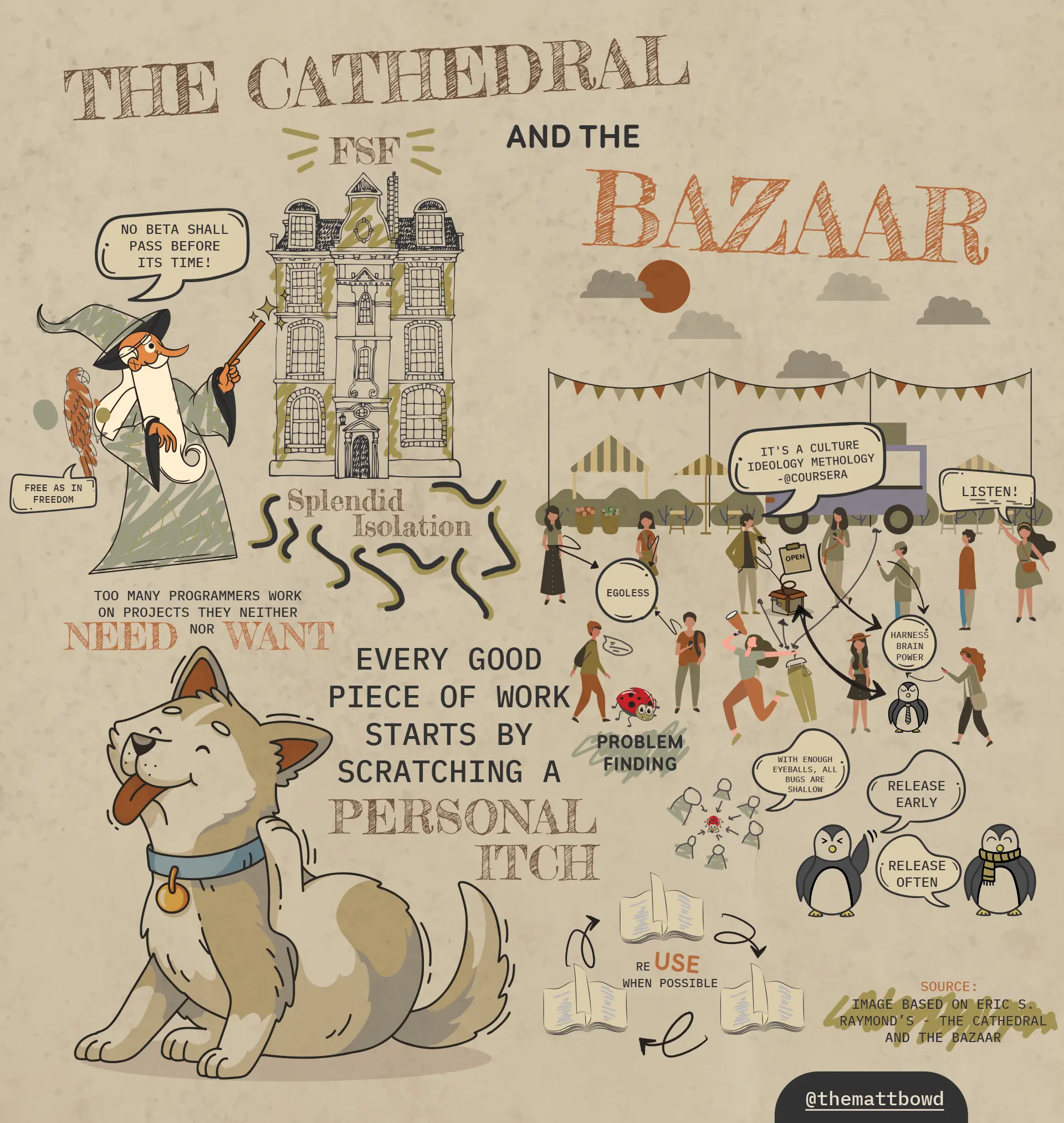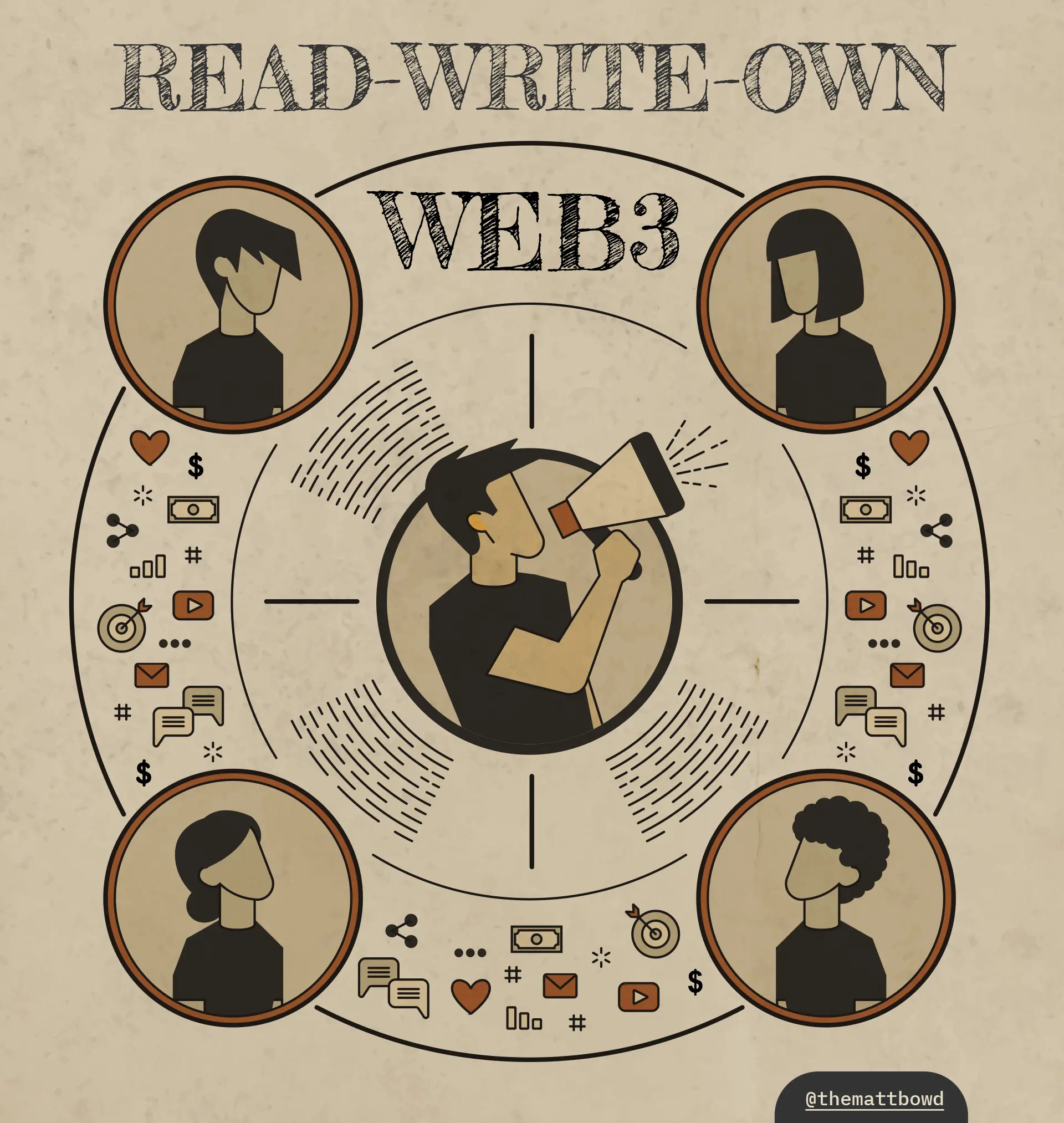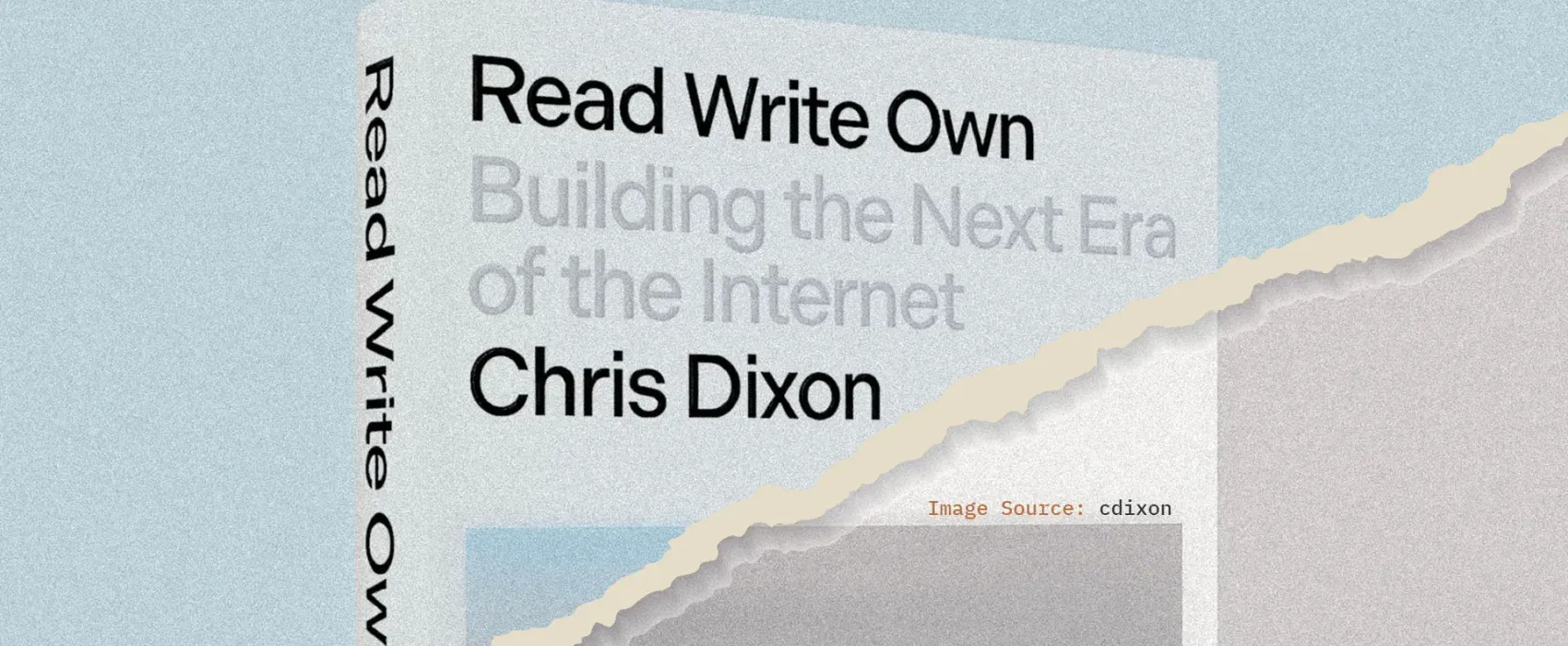Table of Contents:
I was lucky enough to get a copy of an AUP (Advance Uncorrected Proof) of Read Write Own in December, 2023. Written by Chris Dixon, this book discusses the three stages of the internet with a particular focus on what comes next:
- “The first act - called the “read” era, circa 1990’s, democratised information.
- The second act, the “read-write” era during the mid 2000’s democratised publishing.
- The third act, the “read-write-own” era, now upon us, is democratising ownership.”

What does the author
do well in this book?
Plenty. It is a rare ability to combine entry-level definitions with more complex, nuanced topics however the author certainly provides enough background context and depth to make the more complicated themes digestible and understandable for non-technical people.
The author also avoids hyping up future technologies unnecessarily instead providing more matter-of-fact descriptions of the technology that essentially sell themselves. This allowed me to evaluate my own utilisation of the next stage of the internet without having to do too much analysis on the validity of the technology claims themselves.
Concepts to explore.
Cathedrals Vs Bazaars
I have always appreciated the concept of the skeuomorphic nature of technology and it’s ability to compound knowledge and capabilities. In the context of the following quote, I can’t help but wonder what the web3 internet will enable in terms of increasing ownership:
“In his famous 1998 essay, “The Cathedral and the Bazaar”, the progammer and open source advocate, Eric Raymond, contrasts two models of software development. In the first model, popularised by closed-source companies like Microsoft, software is “built like cathedrals, carefully crafted by individual wizards or small bands of mages working in a splendid isolation.” In the second model, popularised by open-source projects like Linux, the community seems to “resemble a great babbling bazaar of differing agendas and approaches.” and the guiding philosophy is “release early and often, delegate everything you can, be open to the point of promiscuity."
- Chris Dixon
As someone who thrived in the bustling bazaars and markets of India, Philippines and the Middle East, the concept of a digital bazaar-like environment is very exciting to me. The sharing of ideas, rapid iteration, fast pivots and highly creative personalities is something we need to enable more of.

Corporate Take Rates
Corporate network take rates are obscene. A digital world with more creator ownership can only be a good thing for our world.
“Corporate network owners not only suck up almost all network revenue , but they find ways to extract additional fees on top of that. Network participants get left high and dry. They spend years cultivating followings; then the rules change and they are forced to pay even more to reach they audiences they built.”
- Chris Dixon
The obscene nature of corporate take rates is the soft underbelly of the web2 institutions:
“Where bean counters see fat margins, entrepreneurs should see blood. Your take rate is my opportunity, as Bezos might say.”
- Chris Dixon
Web3 is empowering an army of creators that will or are already smelling the blood in an environment where take rates have been outrageously unfair.

How this book can be used.
There is a new world dawning and concepts in this book are largely proven, workable and either present in their infancy or already growing.
For individuals, the opportunity to move to a model where you have much more ownership of your own data is one that should be embraced swiftly. With ownership, new opportunities will arise that will allow your creativity, skills and effort to be rewarded, hopefully in environments that are more interesting than the bland corporate networks that dominate now. Those opportunities might just change the way you work, earn and play.
For organisations, prioritizing ownership of your data and changing operating models to embrace web3 is very important. If you are a technology company, learning to change your thinking to leverage new ways of creating will provide significantly more value for your customers and your people. Product creation and ownership is changing, for the better, and it is time to harness new ideas that are less constrained by corporate networks.
Read Write Own is a book I plan to re-read multiple times. Not only for the value it provides, but also for the energy it creates in me as I dream of new things for a new world.

Community hub
Kindly adhere to our Community Guidelines.